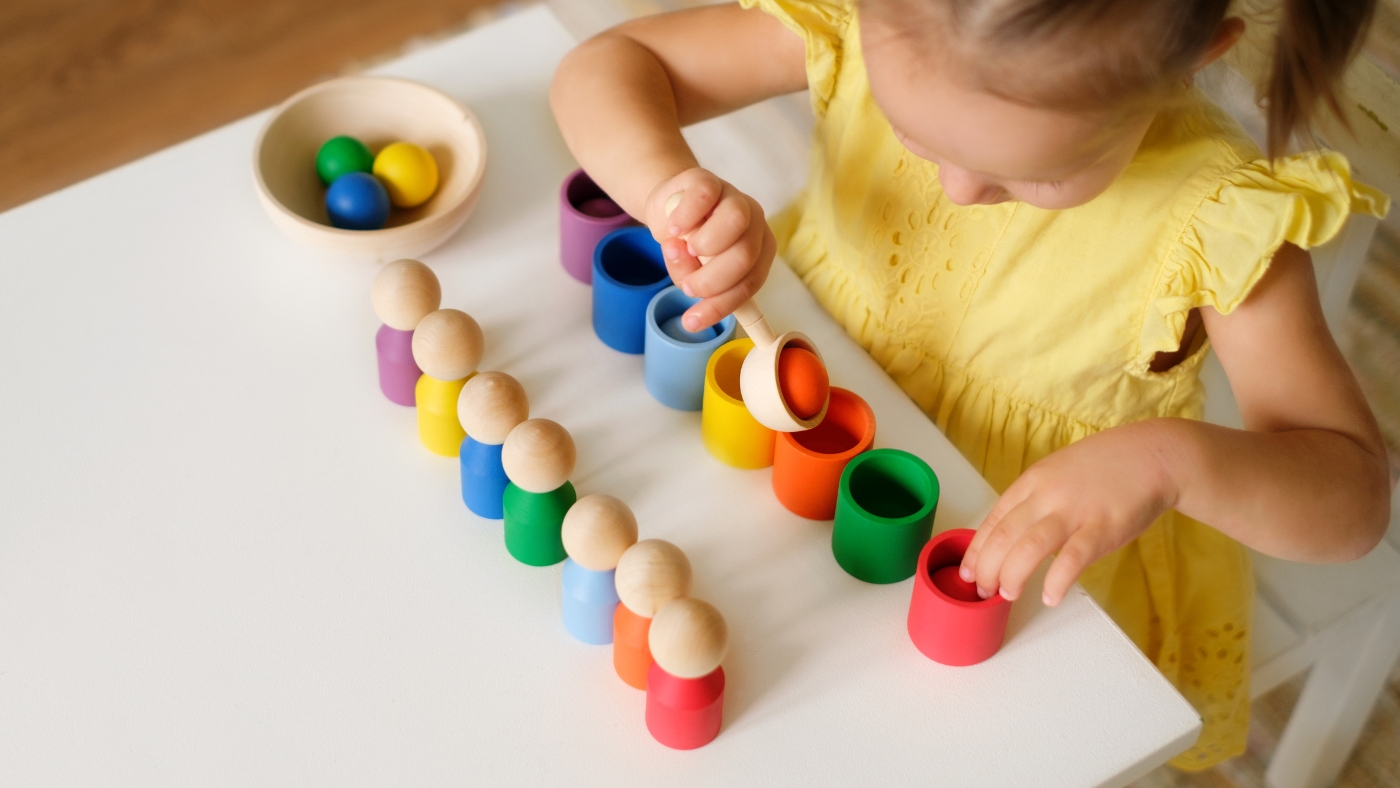
Children have an innate desire to participate in the activities they observe in their everyday lives. Montessori education recognizes this natural inclination and emphasizes the importance of practical life activities in a child’s development.
By providing Montessori-inspired toys that mimic real-life tasks, such as pouring and sorting, parents and educators can create meaningful learning experiences that foster independence, coordination, and concentration. In this blog post, we will delve into the world of practical life play and explore the benefits of Montessori toys that engage children in activities resembling everyday tasks.
Pouring: A Practical and Sensorial Experience
Pouring activities not only replicate a common task but also offer a practical and sensorial experience for children. Montessori pouring toys typically consist of pitchers, jugs, and cups that allow children to pour and transfer liquids from one container to another. This activity not only hones fine motor skills but also promotes coordination, concentration, and self-control.
Benefits of Pouring Activities
Fine Motor Development
Pouring requires controlled hand movements, hand-eye coordination, and a steady hand, which enhances a child’s fine motor skills and dexterity.
Concentration and Focus
Pouring activities demand attention to detail, concentration, and focus, helping children develop their ability to complete a task with precision.
Sensorial Exploration
By pouring and feeling the weight, sound, and movement of liquids, children engage their senses and develop a deeper understanding of the physical properties of liquids.
Independence and Confidence
Pouring activities empower children to take charge of a practical task independently, fostering a sense of accomplishment and boosting their self-confidence.
Sorting: Organizing the World
Sorting activities are an integral part of a child’s development, as they lay the foundation for logical thinking, categorization, and problem-solving skills. Montessori sorting toys typically consist of objects or materials that children sort based on attributes like color, shape, size, or texture. By engaging in sorting activities, children enhance their cognitive abilities while refining their fine motor skills.
Benefits of Sorting Activities
Cognitive Development
Sorting toys challenge children to observe, analyze, and categorize objects based on different attributes, promoting critical thinking and cognitive development.
Fine Motor Skills
Sorting involves precise hand movements, the use of pincer grasp, and coordination, which strengthen a child’s hand muscles and refine their fine motor skills.
Visual Discrimination
Sorting activities enhance visual perception as children differentiate between attributes such as color, shape, size, and texture.
Problem-Solving
Sorting toys offer opportunities for problem-solving as children encounter challenges such as deciding which category an object belongs to or finding alternative sorting criteria.
Montessori-inspired toys, such as threading beads and building blocks, offer a plethora of benefits for children’s fine motor skills development. Through these hands-on activities, children refine their hand-eye coordination, strengthen their finger muscles, and enhance their cognitive abilities. Additionally, these toys promote concentration, patience, problem-solving, creativity, and social interaction, making them an excellent choice for well-rounded development.
By incorporating these engaging toys into a child’s playtime, parents and educators can provide an environment that encourages fine motor skill development, cognitive growth, and imaginative exploration. So, let the fine motor fun begin, and watch as your child’s skills blossom through the joy of Montessori-inspired play!



